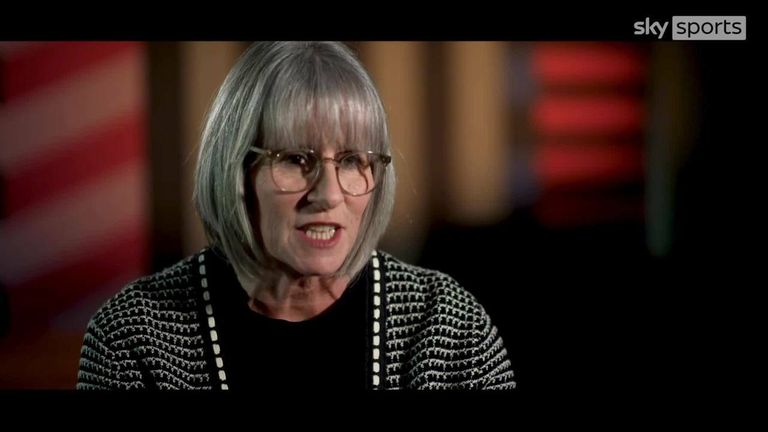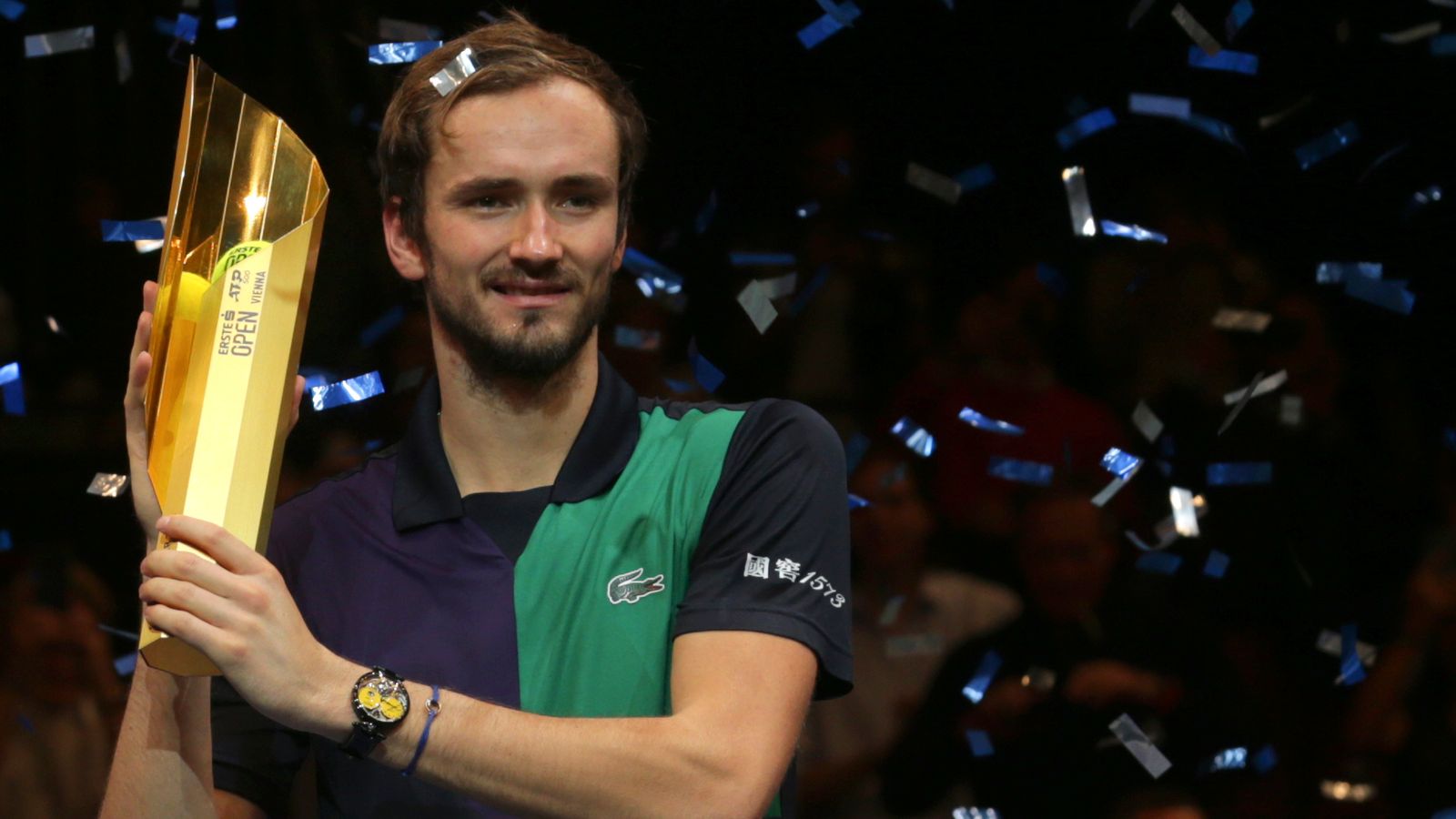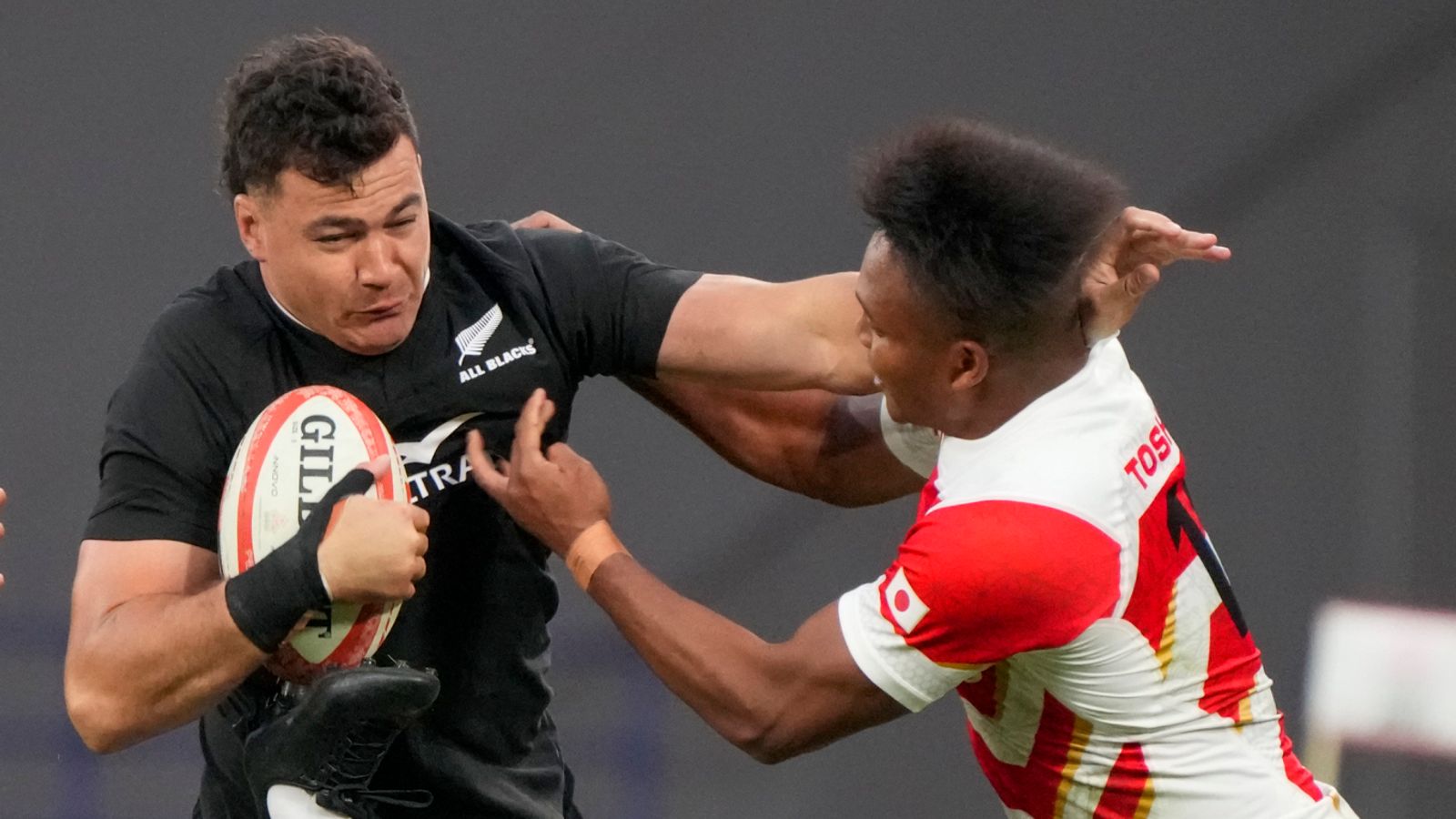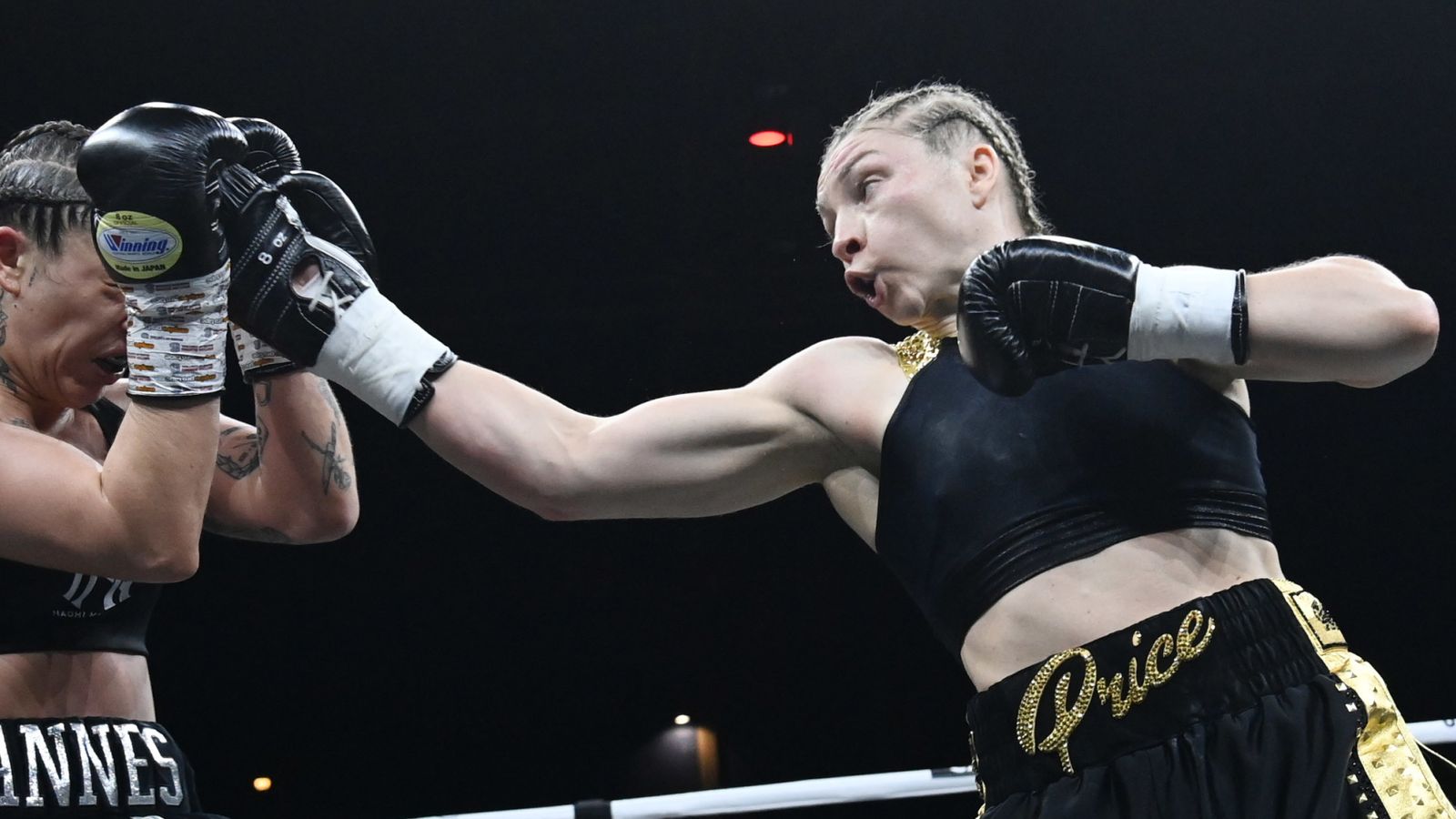Include Summit: Seven ways to make football friendlier, and more talking points ahead of major event for inclusion in sport | Football News
Fan violence, incidents of alleged racist abuse, and even an arrest on suspicion of child neglect – these are just a few of the incidents that made headlines in professional men’s football last weekend.
Pictures of a fan throwing punches at Nottingham Forest players during their FA Cup win over Leicester on Sunday are a shocking throwback to the hooliganism of yesteryear. Meanwhile, on the previous day at Rotherham, two supporters of the home team were arrested after an Accrington player was ‘assaulted’ during a League One game.
In the same division, the match between Morecambe and Bolton was temporarily halted due to alleged racist abuse; in League Two, a Leyton Orient fan was arrested for allegedly directing racist abuse at a Colchester player; while a Middlesbrough fan was arrested on suspicion of child neglect after his team’s FA Cup victory at Manchester United on Friday.
Also at the weekend, the FA and the Premier League were being urged to call for action against gender-based violence. In recent weeks, Sky Sports has reported on a Durham University study that found football message boards are rife with “openly misogynistic” attitudes towards women’s sport. One of the campaigns gaining the most traction at the moment is #HerGameToo which is raising awareness of the fight against sexism in football.
What do all these stories suggest about the state of the nation’s game? Sometimes, it feels as if the atmosphere in the stands, on social media and in other football spaces may in fact be getting unfriendlier.
There is, fortunately, another narrative. With increasing emphasis being placed on equality, diversity and inclusion (ED&I), leagues, clubs and other organisations are striving to make football more welcoming for everyone. Yet the big talking points are often dictated by offences and misdemeanours, perhaps more so off the pitch than on it.
Kick It Out aims not only to drive down discrimination but also to help provide opportunity and shift football culture in a positive direction. That can be challenging when the news is so negative, admits the organisation’s chair Sanjay Bhandari.
“What you get through a year is reaction to incidents, and in some ways that plays into the worst habits of sport,” says Bhandari.
“Sport is incredibly reactive, and it reacts to money and negative PR. Those are also the two worst reasons to try and drive sustainable change.”
He wants more time and space set aside for constructive conversation, which is why the launch of a new event dedicated to ED&I in sport is of great appeal. The Include Summit, which will be held in Birmingham on 8 and 9 March, is bringing together over 1,000 attendees with an overarching ambition to boost the participation of under-represented groups in sport, particularly young people. Bhandari is one of over 80 speakers announced so far; Denise Lewis, Azeem Rafiq, Anton Ferdinand and Judy Murray are among the headliners.
“Having a point in time when you can reflect on where we’ve been, where we are, and where we need to go is incredibly important,” he tells Sky Sports.
“In the inclusion field, it’s about working together – but that’s something that maybe in the fabric of sport isn’t really woven in. Competitiveness on the pitch is a positive but it tends to bleed off the pitch, where it’s a disadvantage. It imbues the whole culture of sport and so we become not very good at cooperating and collaborating.”
The Summit’s wide-ranging agenda of panel discussions, plenaries and workshops encompasses topics from effective allyship to Muslim engagement; health inequalities to inclusion in esports; mental health and the role of the media; and barriers to participation for disabled people.
Bhandari is speaking alongside the ED&I leads of the FA, Premier League and EFL on a panel exploring representation in British football. He’s also contributing to another panel chat about a topic that he believes is the cornerstone to creating a friendlier football culture in this country.
“I have a ‘magnificent seven’ of things that we need to be thinking about in football – and the first one is online abuse,” he explains.
“That applies all the way from elite players in the Premier League to grassroots. It has such an impact in the real world because it sets the culture of toxic conversation. The worst behaviour that we tolerate, that’s our culture – and the worst behaviour that we tolerate is online.
“It’s not a separate world – there are real people behind these words, and that normalises that behaviour. It’s a beacon when we’re talking about tackling discrimination but it’s also an accelerant for real-world behaviour.”
Bhandari lists more of the challenges which he thinks are the most pressing for football to address if it is to truly claim that it is ‘the nation’s game’.
“There’s the absence of Black coaches – and I’m deliberately saying Black coaches, because the pathway for coaching is so often through playing and we don’t have enough South Asian players.
“And that’s the third issue – the absence of South Asian players. It’s the biggest statistical anomaly in English football. There are twice as many people of South Asian heritage in the UK than of Black heritage, but you are 100 times more likely to be a professional player if you’re Black than if you’re South Asian. Something is wrong in the system and nothing has been happening for 50 years.
“In the women’s game, there’s an absence of Black and South Asian players in the elite game and in coaching. We have to identify the barriers there, and unblock them.”
Structure and culture
The first day of the Summit will be International Women’s Day. Sue Anstiss, the co-founder of the Women’s Sport Collective, is moderating a closing panel titled ‘Women’s Sport – Progress to Parity’ that features Yashmin Harun, the chair of the Muslimah Sports Association, an award-winning charity that is helping women from diverse ethnic communities get into football and other sports.
Anstiss also believes the Summit has great potential. “We talk a lot about that intersectionality of making sure we’re representing all women. There are so many practical learnings we can take from these sessions.
“A lot of my work historically has been around visibility and funding. I’m interested in what sits behind that – the governance, managers and coaches, creating that environment where women feel they have an opportunity to thrive.”
Another of her panel guests is the athlete Mhairi Maclennan, who last year set up an organisation called Kyniska Advocacy which has a focus on creating safe sports environments in which women are protected. Maclennan was the victim of sexual abuse from one of her former coaches, who received a lifetime ban from UK Athletics in November.
“I’ve seen what Kyniska have done with their work and I’m excited to hear more from Mhairi,” adds Anstiss. “We’ll look at what we can put in place across sports generally.
“On my panel, we’re talking about this from a gender parity point of view but that isn’t just reserved to women – that goes for men and boys and everybody within the world of sport.”
She mentions topics related to being LGBT+ in sport and the inclusion of people who are trans and non-binary. These stories are also increasingly making the news – on Monday, it was reported that several clubs are boycotting an inclusive amateur 5-a-side league in London after their trans and non-binary players were made to feel unwelcome.
At the same time, Football v Homophobia is in its annual Month of Action, with Tottenham, QPR and Swansea among the clubs activating the anti-LGBT+ discrimination campaign.
It’s another area of challenge in football specifically which Bhandari has factored into his ‘magnificent seven’.
“Our culture in football is such that predominantly, people from the LGBT+ community don’t necessarily feel comfortable to be themselves.
“Obviously the big one that everyone talks about is the absence of an out gay male professional player but it’s more than that. My wife doesn’t like football but if I went to a game with her, I could probably hold her hand going in. I bet you not many same-sex couples could hold hands going into the game. We’re not there yet.
“The broader question – which also impacts on things like misogyny – is the culture of ‘toxic masculinity’ within the game and we’ve seen very high-profile incidents recently in relation to that.
“The last thing goes across all strands of under-represented or minority communities – a lack of representation in senior leadership that is still predominantly straight, white and male.”
An aim of accessibility
Kick It Out has recently started working with the ECB to explore, identify and address ED&I issues in cricket, and while Bhandari stresses that there is still “plenty to do” in football, he says the organisation holds an ambition to look at other sports as well.
The networking opportunities offered by the Summit are therefore of significant value. “It’s the kind of interaction you can only have while wandering around – the sparks and the reactions, those serendipitous collisions. That simply doesn’t happen on Zoom.”
In September 2020, Anstiss launched the Women’s Sport Collective (which, like Kick It Out, has a partnership with Sky Sports) as an antidote to the networking problems caused by the pandemic. “Online, we bring together the people that we choose to be with – but to be at a conference with people from different backgrounds, with different expertise… that’s what I’ve missed in the last couple of years.”
Jamie Hooper is one of the Summit’s co-founders and organisers. He acknowledges that for some people who are keen to attend, getting to Birmingham for two days in midweek may be impossible. It’s why the event has a strong commitment to accessibility.
“There are a few different options,” he says. “It’s hybrid so there’s going to be a virtual element – both of the main discussion stages will be able to be watched online, and we’ll record those so people can access them later as well.
“There’s flexibility too in terms of prices, and the discounts we can offer. The benefit of us doing it independently, and this being our first year, means we can find a right balance for everyone.
“We want to create a collaborative space so we wouldn’t want anyone to feel like they couldn’t attend. We’re also giving away up to 300 free tickets for young people and community leaders on both days. Hopefully in line with the theme of the event, it should be accessible for everyone.”
Games that are more equal, with a more diverse representation of people across different sports, all working in harmony, with the overall ambition of boosting youth participation. It might sound idealistic but the determination within the sector is evident.
“You’ve got to believe the people at the Summit want to make a difference,” says Anstiss. “Going forward, it’ll be about how we take those learnings and also filter them out so that people who aren’t attending are given the tools to make a change too.”
More collaboration, less competition – that’s what the results business looks like on inclusion.











Pingback: golden teacher mushroom grow kit usa,
Pingback: buy weed online toronto
Pingback: brainsclub
Pingback: 토렌트 다운
Pingback: Golden Teacher spore syringes,
Pingback: u31
Pingback: unieke reizen
Pingback: browse around these guys
Pingback: tga168